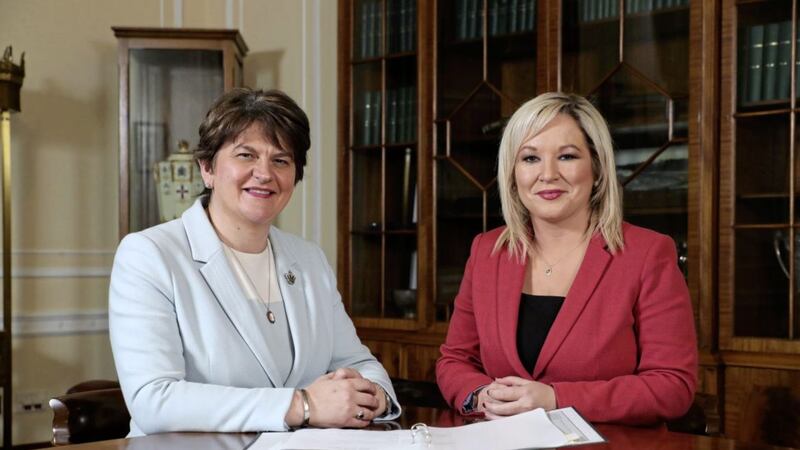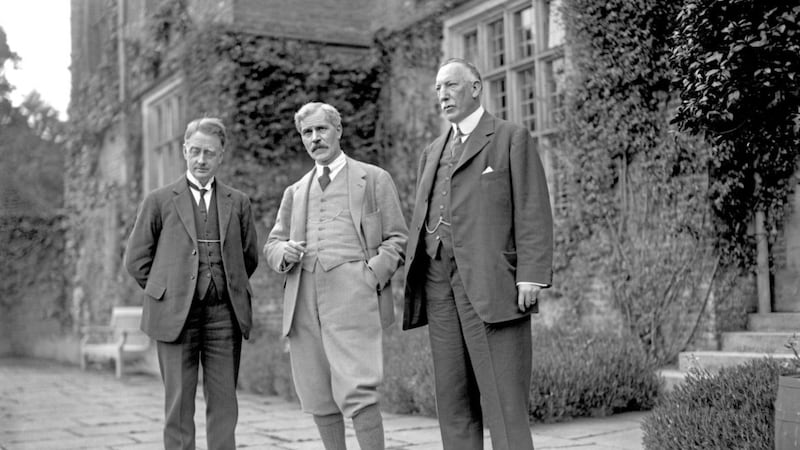THE decision by all the parties to restore the north’s all-Ireland institutions of government opens up a new chapter and opportunities to advance the good work already done in creating a democratic society within the terms set out in the Good Friday Agreement.
The restoration also affords an opportunity to develop the new political constituency – Remain – which has played a key role in changing the face of politics in the north over the last few years.
The Irish and British government’s proposals contained in the document New Decade, New Approach are designed to re-establish the north’s all-Ireland institutions on the basis of respect – the absence of which by the DUP led to the late Martin McGuinness resigning.
It is a poignant moment for republicans as the restoration occurred close to the third anniversary of Martin’s resignation.
Respect for people’s national and cultural identity – Irish and British - and an acceptance that beyond these general identities that society is multi-cultural and that people’s personal lives are varied and that society has to function within a human rights framework.
The language of the document and its tone has a feel to it which is sincere and earnest in its desire to see a power sharing government which recognizes the complexity of a divided society and the need for that society to be governed mindful of the people’s allegiances.
Of course, there is a need for caution because of the history of the DUP in government, where it abused its power to serve its interests, and supported the Tory government’s Brexit plan which continues to threaten Ireland’s economies, north and south.
But with this in mind its is also important to say that the intent of the document has created a situation where on legacy, language, Irish and Ulster Scots, and rights, in the broadest sense, the ‘glass is potentially half full, not half empty’.
With respect to legacy, relatives’ campaigning groups will welcome the fact that reference is made by the British government to resolving this long-standing issue and its commitment to, within 100 days, publish and introduce legislation in the UK parliament to implement the Stormont House Agreement.
The section dealing with the status of the Irish language is impressive in terms of the state’s recognition and respect of it based as it will be in law.
The response of Dr Niall Comer, president of Conradh na Gaeilge, is worth quoting in full: This legislation is undoubtedly an historic advancement for our community, and for those who wish to use the language, by providing historic official status, legal protection and an Irish Language Commissioner for the first time in the history of the state. This has only come about as a result of a tireless, inspirational and bottom up campaign which has transformed how people here now view the language and ultimately how the state will interact with our community and shared language moving forward.
There is no doubt that the vocal, colorful and articulate campaign by An Dream Dearg was instrumental in placing the status of the Irish language centre stage and the group is likely to ensure that it remains there until the promise of the document is fully attained and where needed improved upon.
The Irish citizenship rights campaigner, Emma DeSouza, welcomed the change in the law which accepts that people in the north have a legal right to hold Irish or British citizenship as first outlined in the Good Friday Agreement. And that the British government will change its immigration law to reflect this right.
In effect this means that for purposes of reuniting families the British government will legally recognize the right of people in the north to identify as Irish or British or both. This will be of huge benefit to people who like Emma are Irish or others who are British.
It was the stand taken by Emma and her husband Jake which highlighted the British government’s failure to legally implement the citizenship clause in the GFA. Her persistence, and the help she got particularly from Seanadoir Niall Ó Donnghaile, who I work with in the Seanad, has led to the what she described as a major breakthrough.
The striking nurses, teachers, mental health support and health services will also benefit from the significant financial commitments made in the document.
A timely start to a new year.








